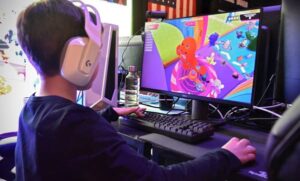Introduction:
In recent years, research has shown that gaming can play a significant role in children’s learning. This post delves into the cognitive benefits of gaming and how it can be used as an educational tool.
Content:
Many studies suggest that video games can enhance critical thinking, problem-solving skills, and hand-eye coordination. Games often require players to strategize, make quick decisions, and adapt to new challenges, which can translate to improved academic performance.
For example, puzzle games encourage logical reasoning and spatial awareness, while team-based games foster collaboration and communication skills. Additionally, educational games specifically designed to teach subjects like math and language arts can make learning more engaging.
By embracing gaming as a learning tool, parents can help their children develop essential skills while enjoying their favorite pastime.
Conclusion:
Understanding the educational value of gaming can help parents leverage this medium to enhance their children’s learning experiences.







